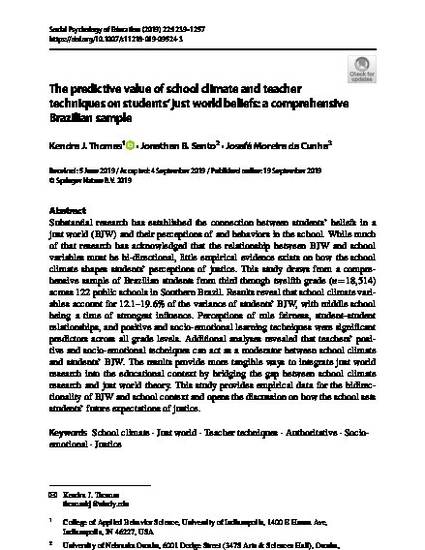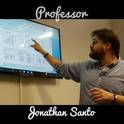
Article
The predictive value of school climate and teacher techniques on students’ just world beliefs: a comprehensive Brazilian sample
Social Psychology of Education
(2019)
Abstract
Substantial research has established the connection between students’ beliefs in a just world (BJW) and their perceptions of and behaviors in the school. While much of that research has acknowledged that the relationship between BJW and school variables must be bi-directional, little empirical evidence exists on how the school climate shapes students’ perceptions of justice. This study draws from a compre- hensive sample of Brazilian students from third through twelfth grade (n=18,514) across 122 public schools in Southern Brazil. Results reveal that school climate vari- ables account for 12.1–19.6% of the variance of students’ BJW, with middle school being a time of strongest influence. Perceptions of rule fairness, student–student relationships, and positive and socio-emotional learning techniques were significant predictors across all grade levels. Additional analyses revealed that teachers’ posi- tive and socio-emotional techniques can act as a moderator between school climate and students’ BJW. The results provide more tangible ways to integrate just world research into the educational context by bridging the gap between school climate research and just world theory. This study provides empirical data for the bidirec- tionality of BJW and school context and opens the discussion on how the school sets students’ future expectations of justice.
Disciplines
Publication Date
2019
Citation Information
Jonathan Bruce Santo. "The predictive value of school climate and teacher techniques on students’ just world beliefs: a comprehensive Brazilian sample" Social Psychology of Education (2019) Available at: http://works.bepress.com/jonathan_santo/79/
